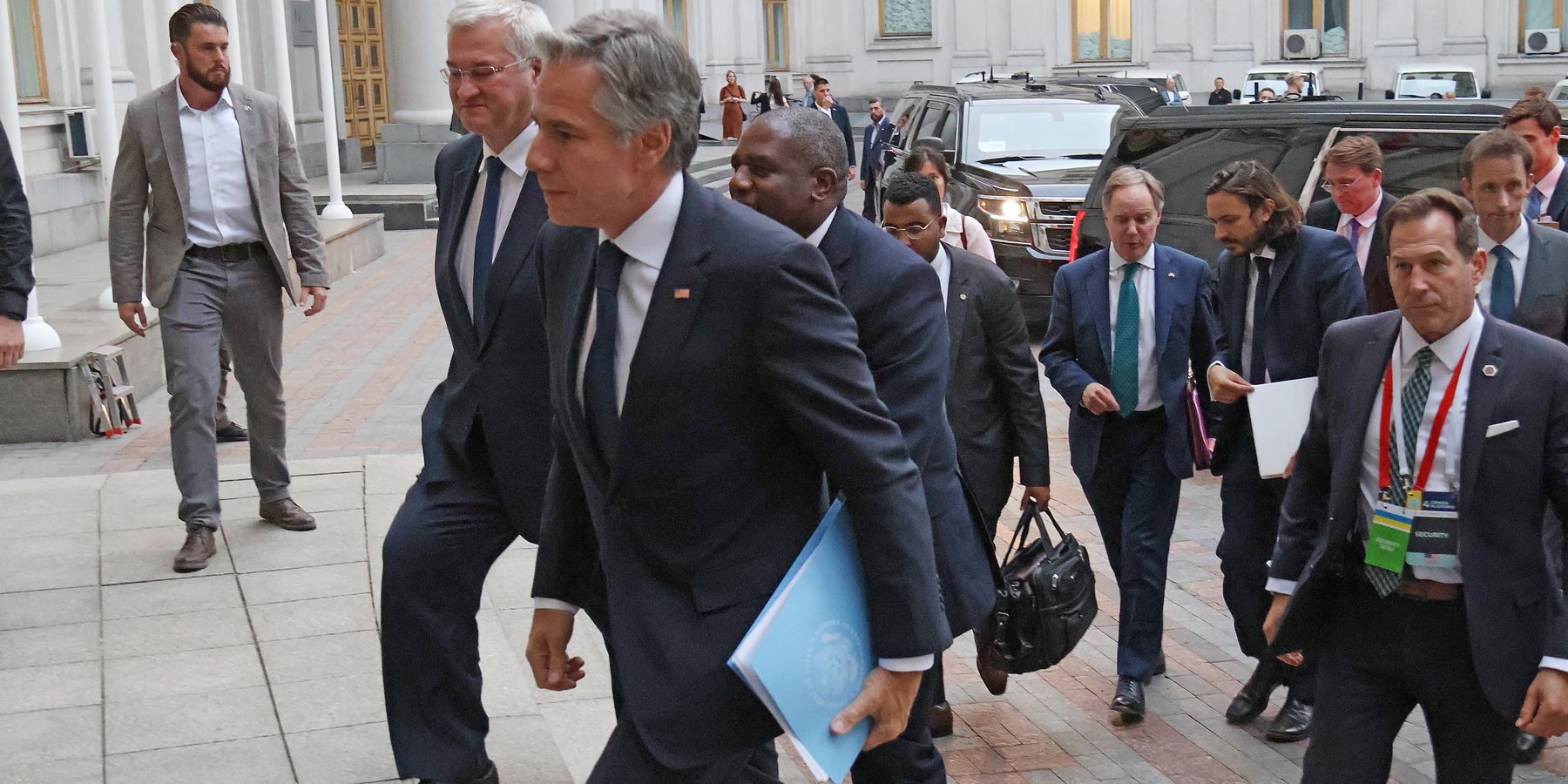Russia and the West are quickly running out of maneuvering room to avoid a head-on military collision.
In the wake of reports that the United States and United Kingdom are poised to approve the use of Western missiles to attack deep inside of Russia, Russian president Putin yesterday made his most pointed comments to date by claiming the move would “change the very nature of the conflict” and would mean NATO and Russia were “at war.” He warned that Russia would take “appropriate decisions.”
In response, UK Prime Minister Keir Starmer stated, “Russia started this conflict. Russia illegally invaded Ukraine. Russia can end this conflict straight away. Ukraine has the right to self-defense.”
The military logic for testing Russia’s resolve on this matter is unclear. There is little reason to believe that using air-launched cruise missiles will significantly increase Ukraine’s chances of winning what has become a war of attrition, in which the Russians have enormous advantages over Ukraine in population and military manufacturing. The Russians are wearing down the Ukrainians’ ability to put well trained, well equipped forces into battle, and air-launched cruise missiles will not change that.
Second, the Russians can adjust to longer-range Ukrainian strike capabilities, as they have already adjusted to the provision of HIMARS artillery and ATACMS ground launched missiles. They have moved supply depots, for example, and they have grown more effective in their use of electronic warfare countermeasures to neutralize advanced Western weaponry.
Third, to have a real impact on Ukraine’s ability to damage the Russian homeland, the West would have to supply very large numbers of very long-range missiles — well beyond the small numbers of basic range models that reportedly are being considered. But the West has limited capacity to provide such numbers, and their provision would almost inevitably provoke direct Russian retaliation.
The political logic behind green-lighting deep strikes into Russia is also obscure. There is little reason for optimism that such attacks would build pressure on Putin to end the war or drive him to the negotiating table, but there is good reason for concern that they will amplify his claims that Russia is fighting NATO, not the Ukrainian people. There are many examples in history of large-scale bombing campaigns’ galvanizing public resistance, and so far that has proved true with Russia’s own strikes on Ukraine, which have stoked Ukrainian patriotism and anti-Russian attitudes.
Another potential unintended consequence is that the escalating lethality of Western military support will harden Russian demands at any future bargaining table. The more the West shows that it is willing to use Ukraine to strike into Russia, the more that Russians will insist on extensive Ukrainian demilitarization as a condition of a settlement.
The risks, on the other hand, are quite significant in comparison to the meager rewards. The biggest danger is that Russia will feel compelled to “restore deterrence,” to show the West that it cannot endlessly increase the lethality and range of weapons it provides to Ukraine without some direct response from Russia. Putin will be under pressure in his own country to draw a hard line with some clear strike on a Western target, lest the West just keep deepening its involvement until Russia has few options other than large-scale war with NATO — which Putin clearly wants to avoid.
What “appropriate measures” might Putin take? Russia is very unlikely to react immediately with nuclear escalation. Instead, it could vastly increase its existing acts of sabotage in Europe (which up to now have been more in the nature of warning shots than major attacks); provide missiles and satellite intelligence to Hezbollah or the Houthis; or, if it feels the need to go further, attack Western satellites, which are key to targeting and guidance for Ukrainian strikes.
Any of these actions could do serious damage to the West and provoke Western responses that would drive further an extremely dangerous cycle of mutual escalation, the end of which cannot be foreseen.
Only Putin knows where he might draw a hard line. But given the dangers of direct war between the world’s biggest nuclear powers, it is quite risky for us to keep pushing to discover where that line might be.
Russia cannot win this war unconditionally. It cannot conquer, occupy, and govern all of Ukraine’s vast territory, which would require an invading and occupying force many times the size of Russia’s current military. But it can wreck Ukraine, leaving it in such a state of dysfunction that it cannot be rebuilt or ally with anyone.
It is not in the West’s interest and not in Ukraine’s interest to make it more difficult to reach a settlement that preserves Ukraine’s independence and provides opportunity for a prosperous future.
What Ukraine desperately needs right now is not long-range weapons. It is a viable plan for achieving a negotiated end to this war that gives Ukraine a realistic chance to rebuild itself and prosper.
- Symposium: What does Ukraine's incursion into Russia really mean? ›
- Ukraine hits targets deep inside Russia in break with Biden administration ›
- No magic US weapon left for offensive Ukraine victory ›
- Biden's ‘Last bang’: allow long range missiles in Russia | Responsible Statecraft ›
















